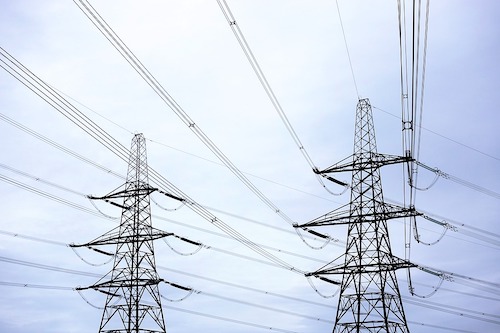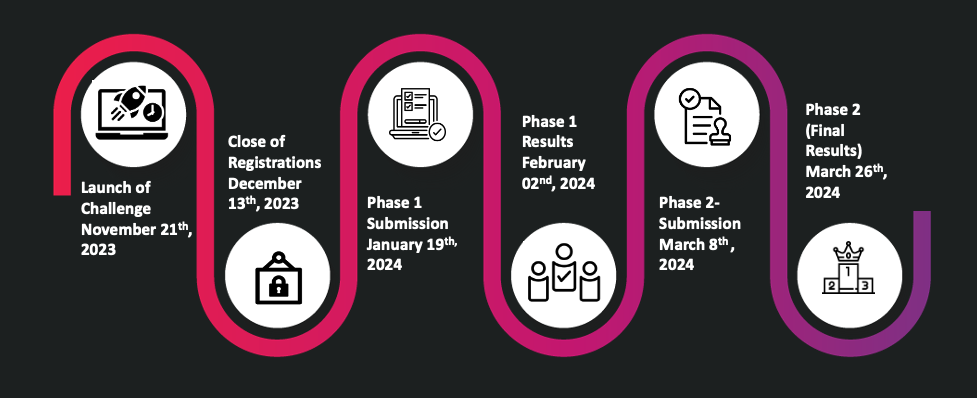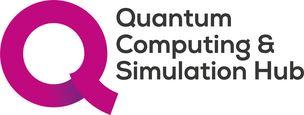TCS Quantum Challenge 2023

Phase 2 submission is complete. Assessment underway – Final Defence Presentations in the week of 18-Mar-2024
TCS Quantum Challenge 2023
We are pleased to invite you to participate in the TATA Consultancy Services (TCS) Quantum Challenge 2023, and provide innovative solutions leveraging quantum computing to solve real-life business problems.
In addition to the attractive prizes, this is an excellent opportunity for the selected teams to pitch their novel solutions to an expert jury panel comprising quantum scientists, academicians, and technology & business experts from the industry, and get valuable feedback and insights.
Come join in and contribute to shaping the future of Quantum Computing!


Rewards
The total prize money for the challenge is £6000 GBP, to be distributed as follows:
• £1000 GBP to be awarded to the entry adjudged as the best solution for each of the 4 Challenge Statements.
• £2000 GBP to be awarded to entry adjudged as the overall best solution across all the 4 Challenge Statements
TCS Quantum Challenge 2023 aims to explore real-life complex business problems faced by our customers across Industries that could potentially benefit from innovative approaches using Quantum Technology.
The limitations of current quantum hardware systems in solving complex business problems such as those defined in the Challenge Statements are well understood and acknowledged. The TCS Quantum Challenge 2023 therefore seeks to invite solutions that maximize the performance (speed, accuracy, reliability etc.) using current NISQ hardware through creative approaches that may involve search-space reduction, use of a hybrid pipeline, error correction etc.
TCS Quantum Challenge 2023 comprises 4 challenge statements:
Challenge 1 - Replenishment of Retail Stores
Challenge 2 - Optimising Power Distribution Network
Challenge 3 - Optimising Fleet Allocation
Challenge 4 - Forecasting of FTSE100 Index
Participating teams (consisting of 2 to 5 members each), may choose to respond to 1 or more of the above challenge statements.
TCS Quantum Challenge 2023 will run over 2 phases:
Phase 1: During this phase, the participating teams will be expected to carry out some preliminary experimentation and arrive at an approach (quantum or hybrid) for solving the challenge. The teams will need to submit their approach at the end of Phase 1. The submissions will be evaluated by a jury panel. As a part of the evaluation process, the Jury Panel may also decide to invite some of the teams to present / discuss their proposed approach. Based on this evaluation, a few of the entries will be shortlisted for participating further in Phase 2.
Phase 2: During this phase the teams shortlisted at the end of Phase 1 will be expected to implement their solution using the quantum hardware provided and then submit & present their results, learnings and proposed future work. The submissions and presentations will be evaluated by a jury panel, and the best solution to each Challenge Statement, as adjudged by the jury will be declared as the winner.

Challenge 1
Replenishment of Retail Stores
For a large retailer, replenishing the store estate with the right products at the right time, requires striking the right balance between stock availability and supply chain cost.
The challenge has multiple dimensions, including rate of sale, range, delivery frequency, pack sizes, sales forecast accuracy, seasonality, distribution center capacity and throughput limitations, physical variations between stores and store access limitations.
Currently, for a retailer with over a thousand stores and tens of thousands of different SKUs, granularity is traded off against speed of calculation and hence stores and SKUs are grouped. This results in a sub-optimal solution.
There is immense potential to identify quantum-based solution approaches to address the need of SKU based service levels with lowest possible working capital and cost to serve.

Challenge 2
Optimising Power Distribution Network
Grid operators have the responsibility to ensure reliable electricity supply, and hence need to design systems that are both reliable and resilient.
Grid operating companies see impact in their business due to energy losses in their grid network caused by transmission losses and inefficiencies in energy storage & conversion. Real-time corrective action to ensure smooth operation of the network is complex due to factors such as energy demand of different customers, the capacity of different nodes in the network, and step-down power for customer usage.
This complexity justifies exploration for viable quantum computing based alternatives to perform real-time optimization and control of power networks to improve efficiency, reduce cost and minimize environment impact.

Challenge 3
Optimising Fleet Allocation
Assignment of individual aircraft to a pre-determined network of flights is a complex process due to a number of factors such as landing slots at airports/hubs, connecting flights, passenger demand, seating capacities, operational costs, maintenance requirements and regulatory compliance.
Quantum computing has the potential to provide an optimal aircraft assignment for airlines that maximises profit while addressing passenger demand and frequency of service.
Challenge 4

Forecasting of FTSE100 Index
Investment Banking firms regularly track and predict future stock indices to make their buy / sell decisions. Fund Managers have been grappling with this prediction which is complex due to high volatility caused by several macro and micro factors such as inflation, policy changes, interest rate movements, fluctuating currency and commodity prices, energy prices, Geo political environments, prices of individual index stocks etc.
Innovative approaches using quantum computing have the potential to accurately predict various indices such as FTSE100, thereby enabling fund managers to take the right decisions across different time periods, thus maximizing profits.
Rules for the Challenge
1) The challenge is a Team Event where each team consists of multiple members participating into the challenge with the most optimal team size of 2 to 5 members. The individuals in a team could be a student, researchers, working professionals or just quantum enthusiasts. Individual participation will not be accepted.
2) The individual in the team should be eighteen (18) years of age or older at the time of registering for the challenge.
3) TCS reserves the right to alter the process, duration of individual rounds of the Challenge at any time, without providing any justification. Such amendments will be communicated to the participating teams prior to such change.
4) The shortlisting ideas will be adjudged by a selected panel of judges/jury. The decision of the judges/jury will be final and binding. Please refer to details of the shortlisting in the ‘Guidelines’ section.
5) All communication within the challenge will be in English.
6) The submissions from the participants will be managed in private Github repositories. Post completion of the event, these private repositories will be converted to public repositories.
7) The Participating member must agree to the terms and conditions of the challenge that are listed in the "Terms & Conditions" section of the ‘Registration’ site.
Guidelines for the Challenge
1) The results of the challenge will be announced online on the Challenge website.
2) As part of the registration process, the participant can select one or multiple challenge(s) that the participant would like to participate for this event.
3) Only one person as lead participant (acting as representative on behalf of the team) shall register and submit a solution for the challenge.

Launch: 21 Nov 2023
The TCS Quantum Challenge 2023 will be virtually launched on 21 Nov 2023, on this Challenge website https://www.qcshub.org/tcs-challenge. The detailed Challenge Statements will be made available to the participants once they register into this event. Communication and press releases announcing the event may precede this date.
Close of Registrations: 13 Dec 2023
The registration site will be open for registrations until 23:59 GMT on 13 Dec 2023. Please review the FAQ section on this site for the registration process and related queries.
Phase 1 Submission: 19 Jan 2024
During Phase 1, the participating teams will be expected to carry out some preliminary experimentation and arrive at an approach (quantum or hybrid) for solving the challenge. The teams will need to submit their approach by the Phase 1 Submission date i.e. 19 Jan 2024. The content of the submission should ideally try to address as many aspects as possible from those listed under Evaluation Criteria for Phase 1.
Phase 1 Results: 2 Feb 2024
All valid entries submitted by 19 Jan 2024 will be evaluated by a Jury Panel. As a part of the evaluation process, the Jury Panel may also decide to invite some of the teams to present / discuss their proposed approach. Based on this evaluation a few of the entries will be shortlisted for participation in Phase 2, and the same would be communicated to the respective teams on 2 Feb 2024.
Phase 2 Submission: 8 Mar 2024
During Phase 2, the teams shortlisted at the end of Phase 1 will be expected to implement their solution using the quantum hardware provided and then submit their results, learnings and proposed future work by the Phase 2 Submission date i.e. 8 Mar 2024. The content of the submission should ideally try to address as many aspects as possible from those listed under Evaluation Criteria for Phase 2.
Phase 2 Results (Final): 26 Mar 2024
All valid entries submitted by 8 Mar 2024 will be evaluated by a Jury Panel. As a part of the evaluation process, the teams will also be required to present, discuss and defend their solution. Based on this evaluation, the best solution to each Challenge Statement, as adjudged by the jury will be declared as the winner. The final results will be communicated to the respective teams on 26 Mar 2024.
TCS reserves the right to modify the timelines at any point of time during the course of this event.
How to Submit
The submissions from the participants will be managed through Github. Each participating team will be granted access to a private Github repository, with access to all the team members in the team.
The link to the Github repository for submission will be shared via email
The Github links will point to Private repositories which can be used by the participating teams for managing their work and submitting their respective challenge solution documents, source code, datasets, executables etc.
In addition to the team members, the organizers, mentors and jury will also have access to these private repositories to enable for assessment of the entries.
Access Control for these private repositories will be managed by the organizers. For any changes to the Access Control List, please write to quantum.challenge2023@tcs.com.
Submission Format
Phase 1:
- The submission may comprise one or more files in any of .pdf /.doc / .docx / .ppt / .pptx formats
- The content of the submission should ideally try to address as many aspects as possible from those listed under Evaluation Criteria for Phase 1
Phase 2:
- Participant shall use Python as the programming language.
- The submission should comprise:
- Code: Jupyter Notebook
- Documentation: one or more files in any of .pdf /.doc / .docx / .ppt / .pptx formats.
- The content of the submission should ideally try to address as many aspects as possible from those listed under Evaluation Criteria for Phase 2
Quantum Environment
TCS has partnered with Amazon to provide access to quantum hardware resources for the Challenge. Amazon Braket is a fully managed quantum computing service designed to help speed up scientific research and software development for quantum computing.
- For Phase 1 of the Challenge, each participating team will be provided with $500 worth of AWS credits per every challenge statement that the team opts to work on.
- For Phase 2 of the Challenge, the teams would be required to provide an estimate of the resources that they would need in Phase 2, as a part of their Phase 1 submission. The estimate will need to be supported with appropriate justification for the resources required, and the experimentation design/approach for Phase 2. Value of AWS credits provided would depend on the estimates, justification, and experimentation design/approach provided.
Evaluation Criteria
The entries will be evaluated by a Jury panel consisting of experts from the Industry and Academia. A representative list of criteria that would be considered by the Jury while evaluating the Phase-I and Phase-II submissions is given below. Please note that there are no specific weightages assigned to each of the criteria, and this should not be interpreted as a comprehensive list. The criteria listed below are indicative, and the Jury panel would be free to use their expertise, experience, and judgement to evaluate the entries.
Phase I:
- Background work done: Quality of background work done to understand the use case and the state of the art.
- Innovation Quotient: The overall innovation quotient in terms of originality and novelty seen in the approach, concept, and the algorithm.
- Comprehensiveness: Level of detail, coverage of the tasks towards the targeted goal of the challenge.
- Promise: As reflected through the results from any early experimentation done. Promise of the planned approach for Phase II.
- Technical soundness: Ability of the team to defend their work during presentation/ interaction with the Jury. Capability of the team to carry forward the work.
Phase II:
- Innovation Quotient: The overall innovation quotient in terms of originality and novelty seen in the approach, concept, and the algorithm.
- Comprehensiveness: Level of detail, coverage of the tasks towards the targeted goal of the challenge.
- Technical completeness: Quality and completeness of the code/solution and its ability to execute and produce results as documented.
- Comparison with internal benchmarks: How well does the solution compare with any benchmark results that may have been achieved by the organizers.
- Impact: Value impact of the solution on current quantum hardware (any benefits shown in terms of improved optimization, speed, accuracy etc. vis-à-vis classical approaches).
- Extensibility: Ease of adapting/modifying the solution to address variants of the use case (especially additional complexities).
- Resource requirements & Scalability: Any resource estimation provided for the solution to indicate the potential future scaling of the solution.
- Technical soundness: Ability of the team to defend their work during presentation/ interaction with the Jury. Capability of the team to carry forward the work.
- Pitch: Clarity, demonstration, and structure of the overall pitch.
Rewards
The total prize money for the challenge is £6000 GBP, to be distributed as follows:
- £1000 GBP to be awarded to the entry adjudged as the best solution for each of the 4 Challenge Statements.
- £2000 GBP to be awarded to the entry adjudged as the overall best solution across all 4 Challenge Statements
Please refer to the FAQ Document here.
For any queries, please write to us at quantum.challenge2023@tcs.com.



